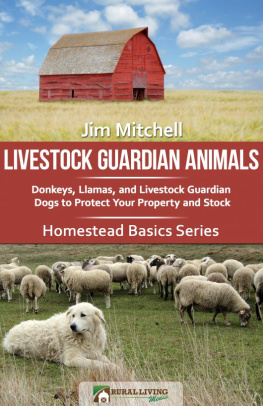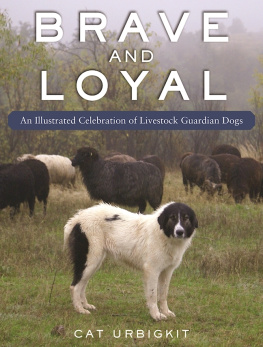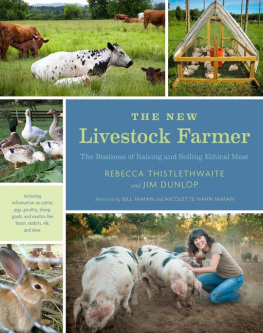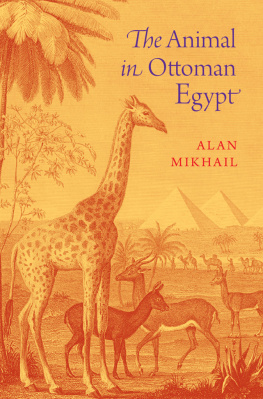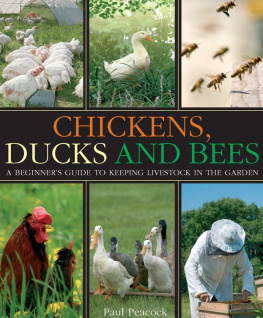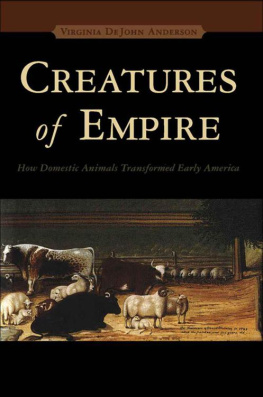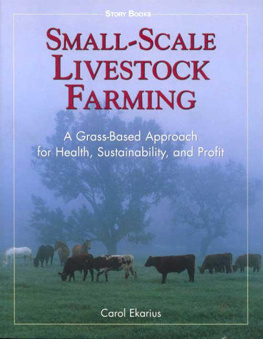Livestock

Robert W. Mitchell, series editor
SERIES ADVISORY BOARD
Jonathan Balcombe
Margo DeMello
Francine L. Dolins
Hal Herzog
Dale Jamieson
Claire Molloy
Paul Waldau
Sara Waller
Livestock

FOOD, FIBER, AND FRIENDS
Erin McKenna

This book was made possible in part by the generous support of the Oregon Humanities Center.
2018 by the University of Georgia Press
Athens, Georgia 30602
www.ugapress.org
All rights reserved
Set in 10/13 Kepler Std by Kaelin Chappell Broaddus
Most University of Georgia Press titles are available from popular e-book vendors.
Printed digitally
Library of Congress Cataloging-in-Publication Data
Names: McKenna, Erin, 1965author.
Title: Livestock : food, fiber, and friends / Erin McKenna.
Other titles: Animals voices, animal worlds.
Description: Athens, Georgia : University of Georgia Press, 2018. |
Series: Animals voices, animal worlds |
Includes bibliographical references and index.
Identifiers: LCCN 2017037415 | ISBN 9780820351902 (hardcover : alk. paper) |
ISBN 9780820351919 (pbk. : alk. paper) | ISBN 9780820351896 (ebook)
Subjects: LCSH: Animal welfare. | Livestock. | Human-animal relationships.
Classification: LCC hv4757.m35 2018 | DDC 179/.3dc23
LC record available at https://lccn.loc.gov/2017037415
CONTENTS

ACKNOWLEDGMENTS

This book has taken a long time and the help of many people. I would like to thank the students who worked with me and all the farmers named (and unnamed) in the text who took time to respond to our questions and show us their farms. Most of the work for this book took place while I was in the philosophy department at Pacific Lutheran University. Special thanks are due to the PLU students who worked with me: Sarah Curtis, Jonathan Stout, Danielle Palmer, Kelli Blechschmidt, McKenzie Williams, and Gregor Uvila. McKenzie and Danielle also contributed photographs to the project. PLU supported this research with a sabbatical leave, Kelmer-Roe grants for student-faculty research, and Wiancko Foundation grants to Environmental Studies. Special thanks are also due to Claire Todd, Rose McKenney, Kevin OBrien, Bill Teska, Brian Naasz, and Sergia Hay. I would also like to thank Tracy Williamson for helping with all the paperwork. I am now in the philosophy department at the University of Oregon and would like to thank Bonnie Mann for her support in helping me finish this project. That support included invaluable work by three graduate studentsRussell Duvernoy, Lauren Eichler, and Margaret Newtonto get the references and index in order.
As with all my work I would like to thank the community of philosophers in the Society for the Advancement of American Philosophy. I rely on the work of many of those philosophers in this book and have benefited from conversations with many more. My special thanks are owed to Doug Anderson, Scott L. Pratt, Mark Johnson, Lisa Heldke, Paul Thompson, Gregory Pappas, Marilyn Fischer, Charlene Haddock Seigfried, Larry Hickman, Lee McBride, Jacoby Carter, Heather Keith, Steven Fesmire, John Kaag, Carol Hay, Tadd Rudnik, Ray Boisvert, Brian Henning, Kim Garcher, Denise James, and Cynthia Willett.
Some ideas contained here have appeared in works published elsewhere. Those works include Philosophical Farming (Journal of Contemporary Pragmatism, August 2012), Eating Apes, Eating Cows (The Pluralist 10, no. 2, Summer 2015), and Pets, People, and Pragmatism (Fordham UP, 2013). Pieces were also presented at the Food and Agriculture Conference, the Society for the Advancement of American Philosophy, and the Living with Animals conference.
Finally, and most importantly, I would like to thank all the other-than-human beings who made this book possible. Meeting the animals on the farms was often the best part of the research: scratching pigs, holding baby goats, greeting turkeys, being mobbed by sheep, petting bulls, being spit at by clams, playing with cats and dogs. And finally, special thanks also go to my own dogs, Tao, Nemesis, Maeve, and Kira, who traveled with us to visit many of these farms.
Livestock
CHAPTER ONE

Respectful Relationships
A PRAGMATIST ECOFEMINIST TAKE ON LIVING WITH LIVESTOCK
Cold, wet, a little seasick, and thinking, I hope we dont die, my students and I were in a boat off the coast of British Columbia, headed toward a vortex that we were told is hazardous to navigate. Apparently there had been a big rock that got in the way of boats, so someone had the idea to blow it up. Problem solved! But while the rock no longer posed a direct danger to boats, the swirl of currents that took its place posed its own challenges. I thought, Here is an example of the bad version of being pragmatic. Encounter an obstacleremove said obstacle. Without greater understanding of the context and relationships involved, such an approach is almost guaranteed to create new and more difficult problems. Ironically, we were in the boat as part of this project to study how the history of farming animals has taken just this approach to problem-solving and has created a vortex of its owna system that is bad for humans, other animals, and the environment.
This trip had become our only hope of seeing a fish farm. Few of those connected to fish farms in the United States would talk with us. Given that some philosophers have been at the forefront of the animal rights and environmental movements, I suppose it is not surprising that there was some suspicion about a philosophy professors motives for contacting them. However, the Canadians were taking a different approach to the growing criticism of fish farmsand of salmon farms in particular. They were running a public relations campaign inviting people to come see salmon in the wild. It was the truth. The pens were placed in the wild and beautiful coastal waters of British Columbia.
Once we were through the vortex, I relaxed and began to enjoy the beautiful scenery. Wooded islands, beautiful water, and emerging sunshine. Our guide told us the Canadian government was working to preserve Canadian resources so that they could be used by future generations. This use included recreational boating and camping, fishing, logging, and farming fish. While fish are not normally thought of as livestock animals, they have been farmed since the fifth century BCE and today humans farm more fish than they do cows. Just as with more traditional livestock, new technology allows for more intensive methods of raising these animal beings for food. However, as with the farming of cattle, pigs, and poultry, fish farming poses risks to the environment, the human consumer, and the animals themselves.
Next page


